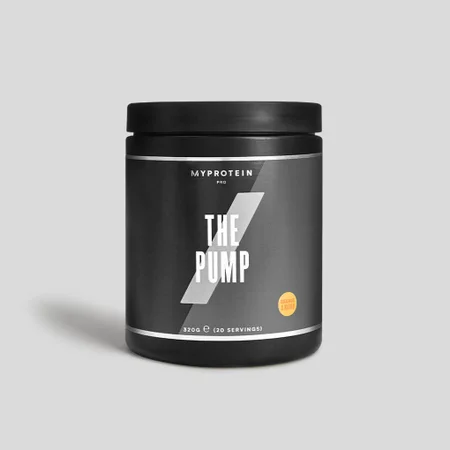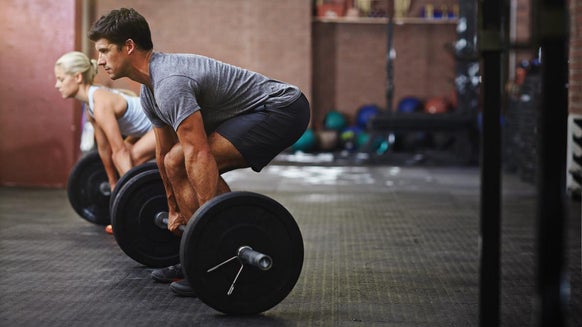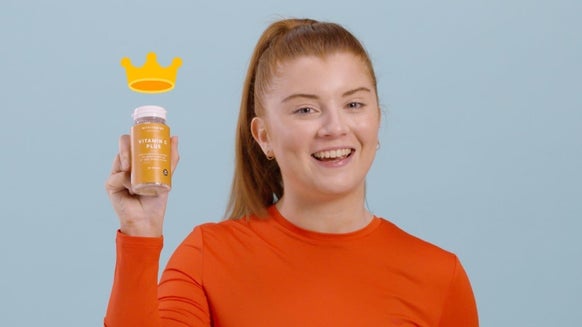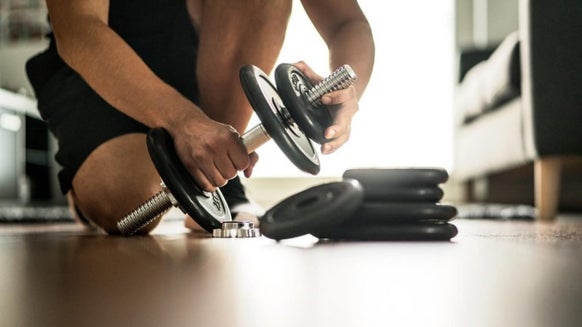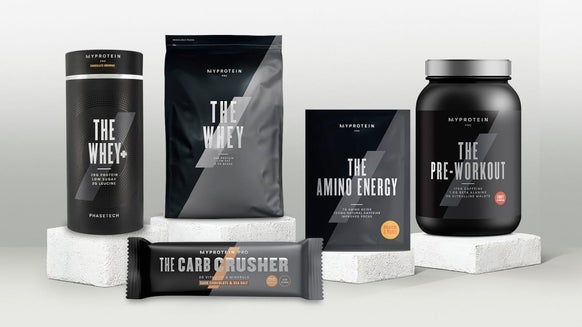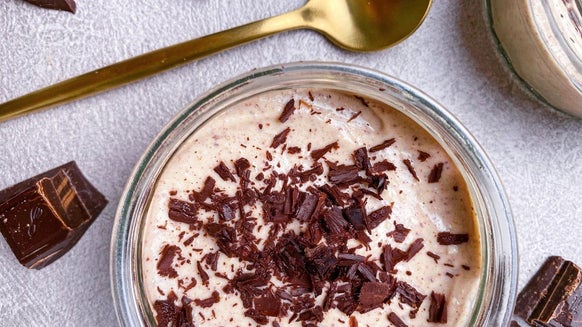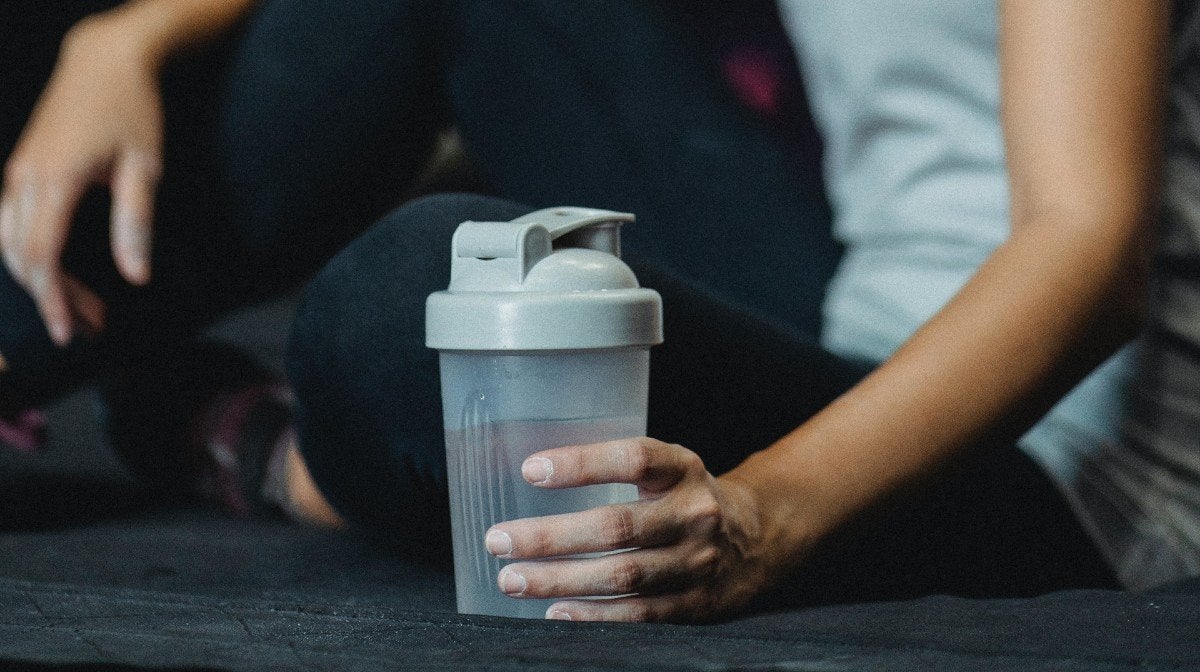
Pre-workout supplements are designed to boost your exercise performance by giving you a boost before your workout. There are plenty of pre-workouts out there, each with different ingredient blends for different goals. Here’s everything you need to know about them, from what they are and what’s in them to how they work and which is the best for you. Plus, read to the end for a deep dive into Myprotein's caffeine-free pre-workout THE Pump.
- What is pre-workout?
- How does pre-workout work?
- Is pre-workout good for you?
- When should you take pre-workout?
- How often should you take pre-workout?
- Is coffee a pre-workout?
- Do athletes take pre workout?
- Should beginners take pre-workout?
- Benefits of pre-workout
- Caffeine-free pre-workout - THE Pump

What is pre-workout?
As the name suggests, pre-workouts are fast-acting supplements taken before your workout to boost short-term performance. They can help improve force production, power, strength, and endurance.1
What is in pre-workout?
Pre-workouts contain a mix of ingredients that can help boost exercise performance, saving you the hassle of taking multiple supplements before your workout.
The ingredients vary from product to product, but commonly include caffeine, beta-alanine, taurine, creatine, and nitrates.
Which ingredients should you look out for in pre-workout?
Each ingredient in a pre-workout enhances performance in different ways. If you're looking to boost strength and muscular endurance, caffeine, beta-alanine, and creatine are essential ingredients. For endurance athletes, like runners and cyclists, caffeine may be the more important ingredient.
How does pre-workout work?
How pre-workouts work depends on their ingredients. Caffeine is a key ingredient in most pre-workouts and has been shown to increase time to exhaustion, delay perception of fatigue, and reduce perception of pain.2
Creatine can also aid in recovery between sets and increase training volume, helping you do more work in your session.
Is pre-workout good for you?
Some pre-workouts include vitamin B1 — which can help with cardiovascular function — and vitamin B12 — which can help with energy production.
But pre-workout also typically contains high amounts of caffeine, which can be dangerous in large quantities, so do not exceed the recommended dose.
When should you take pre-workout?
It’s usually recommended that pre-workouts are taken 45-60 minutes before a workout, so that ingredients (like caffeine) reach peak levels in the bloodstream and their effect is maximised.
How often should you take pre-workout?
It's best to take pre-workout on the days you're training. Some ingredients, like creatine, need to be supplemented over an extended period to have any effect.
How long does it take for pre-workout to kick in?
After consumption, caffeine takes about 45-60 minutes to reach peak levels in the bloodstream. If the pre-workout contains beta-alanine, you may experience tingling in your skin after 15 minutes or so.
How long does pre-workout last?
The half-life of caffeine is 4-6 hours, which is the time it takes for the amount of caffeine in your system to reduce by half. Tingling caused by beta-alanine will typically stop after around 90 minutes.
Is coffee a pre-workout?
Coffee contains caffeine, which is good for endurance and can reduce perception of pain.2 While it may not contain other typical pre-workout ingredients, like beta-alanine, B-vitamins, or taurine, a cup of coffee before your workout can still give you a boost.
Do athletes take pre-workout?
Many athletes take pre-workout supplements to help improve their performance during training or competition. Pre-workout's effect on endurance may make it a useful supplement for a boxer to train harder, a runner to run further, or a weightlifter to do more reps.
Yogis and other fitness enthusiasts may also take pre-workout supplements to help increase their focus and energy during workouts.
Should beginners take pre-workout?
Pre-workouts can be useful for anyone looking to boost their performance. For beginners they can be particularly good for getting through a session when you’re not feeling your best, but it’s best not to rely on them too much so early on in your training. Listening to your body, consuming a well-balanced diet and giving yourself plenty of recovery time are more important when you’re new to training.
The Benefits of Taking Pre-Workout
Improved performance
One of the main benefits of taking a pre-workout supplement is improved performance from the ability to train harder and longer. Ingredients typically found in pre-workouts can help increase endurance and mental focus.*
Boost in concentration
Caffeine is a mental stimulant with studies showing improved mental alertness following consumption.* This can make a pre-workout particularly good for skill-based exercises, like technique-focused weightlifting sessions.
Find other benefits of taking pre-workout
Myprotein's Pre-Workout Range
The Pre-Workout
The Pre-Workout supplement contains a blend of caffeine, creatine, and vitamin B6 to help with energy production and mental focus.
Taurine
Taurine is a naturally occurring amino acid found in high concentrations in skeletal muscle.
Citrulline Malate
Citrulline malate is a nitric oxide enhancer that helps increase blood flow during exercise. This can boost energy production, and potentially improve exercise performance. It has been suggested citrulline malate can improve resistance training and enhance recovery.
THE Pump Explainer
The new and improved version of THE Pump takes your training to the next level without the caffeine buzz. 'How?' you ask? The people behind the scenes who are good at the science brought together scientifically studied, patented ingredients to make the ideal combination, delivering the power of a pre-workout, without the unwanted effects of caffeine.
Seven plant-based ingredients, including green coffee extract, green tea extract, turmeric extract, tart cherry, blueberry, broccoli, and kale.
Sabeet is a direct source of bioavailable dietary nitrates and a highly concentrated form of beetroot, a vegetable with one of the most inorganic nitrates.
Derived from natural mineral source of marine origin, aquamin is a soluble form of highly bioactive magnesium.
Composed of two highly purified and fractionated extracts from Panax notoginseng and Rosa roxburghii and contains the optimal dose of 25mg.
A 100% natural plant-based ingredient popular across sports nutrition.
BioPerine® is a patented extract obtained from black pepper fruits (Piper nigrum) standardised minimum to 95% Piperine
Two highly researched pre-workout ingredients added at optimal doses.
L-citruline 8g for double serving and 1g taurine
Take Home Message
Pre-workout supplements can help give your training an extra lift. They include a range of ingredients that can help boost performance — including caffeine, beta-alanine, and B vitamins — and should be consumed around 45-60 minutes before training for max benefits.
When choosing a pre-workout, look for one with ingredients best suited to your training goals, and always follow recommended doses.
Caffeine contributes to an increase in endurance performance and capacity.
Caffeine helps to improve alertness and aid concentration.
Creatine increases physical performance in successive bursts of short-term, high intensity exercise. The beneficial effect is obtained with a daily intake of 3g of creatine.
Vitamin B12 contributes to normal psychological function.
Vitamin B6 contributes to normal psychological function.
Vitamin B6 normal energy-yielding metabolism.
READ THESE NEXT:

1. Harty, P. S., Zabriskie, H. A., Erickson, J. L., Molling, P. E., Kerksick, C. M., & Jagim, A. R. (2018). Multi-ingredient pre-workout supplements, safety implications, and performance outcomes: a brief review. Journal of the International Society of Sports Nutrition, 15(1), 41. https://doi.org/10.1186/s12970-018-0247-6
2. Guest, N. S., VanDusseldorp, T. A., Nelson, M. T., Grgic, J., Schoenfeld, B. J., Jenkins, N. D. M., Arent, S. M., Antonio, J., Stout, J. R., Trexler, E. T., Smith-Ryan, A. E., Goldstein, E. R., Kalman, D. S., & Campbell, B. I. (2021). International society of sports nutrition position stand: caffeine and exercise performance. Journal of the International Society of Sports Nutrition, 18(1), 1. https://doi.org/10.1186/s12970-020-00383-4
3. Trexler, E. T., Smith-Ryan, A. E., Stout, J. R., Hoffman, J. R., Wilborn, C. D., Sale, C., Kreider, R. B., Jäger, R., Earnest, C. P., Bannock, L., Campbell, B., Kalman, D., Ziegenfuss, T. N., & Antonio, J. (2015). International society of sports nutrition position stand: Beta-Alanine. Journal of the International Society of Sports Nutrition, 12, 30. https://doi.org/10.1186/s12970-015-0090-y
4. Kurtz, J. A., VanDusseldorp, T. A., Doyle, J. A., & Otis, J. S. (2021). Taurine in sports and exercise. Journal of the International Society of Sports Nutrition, 18(1), 39. https://doi.org/10.1186/s12970-021-00438-0
5. Gough, L. A., Sparks, S. A., McNaughton, L. R., Higgins, M. F., Newbury, J. W., Trexler, E., Faghy, M. A., & Bridge, C. A. (2021). A critical review of citrulline malate supplementation and exercise performance. European journal of applied physiology, 121(12), 3283–3295. https://doi.org/10.1007/s00421-021-04774-6
